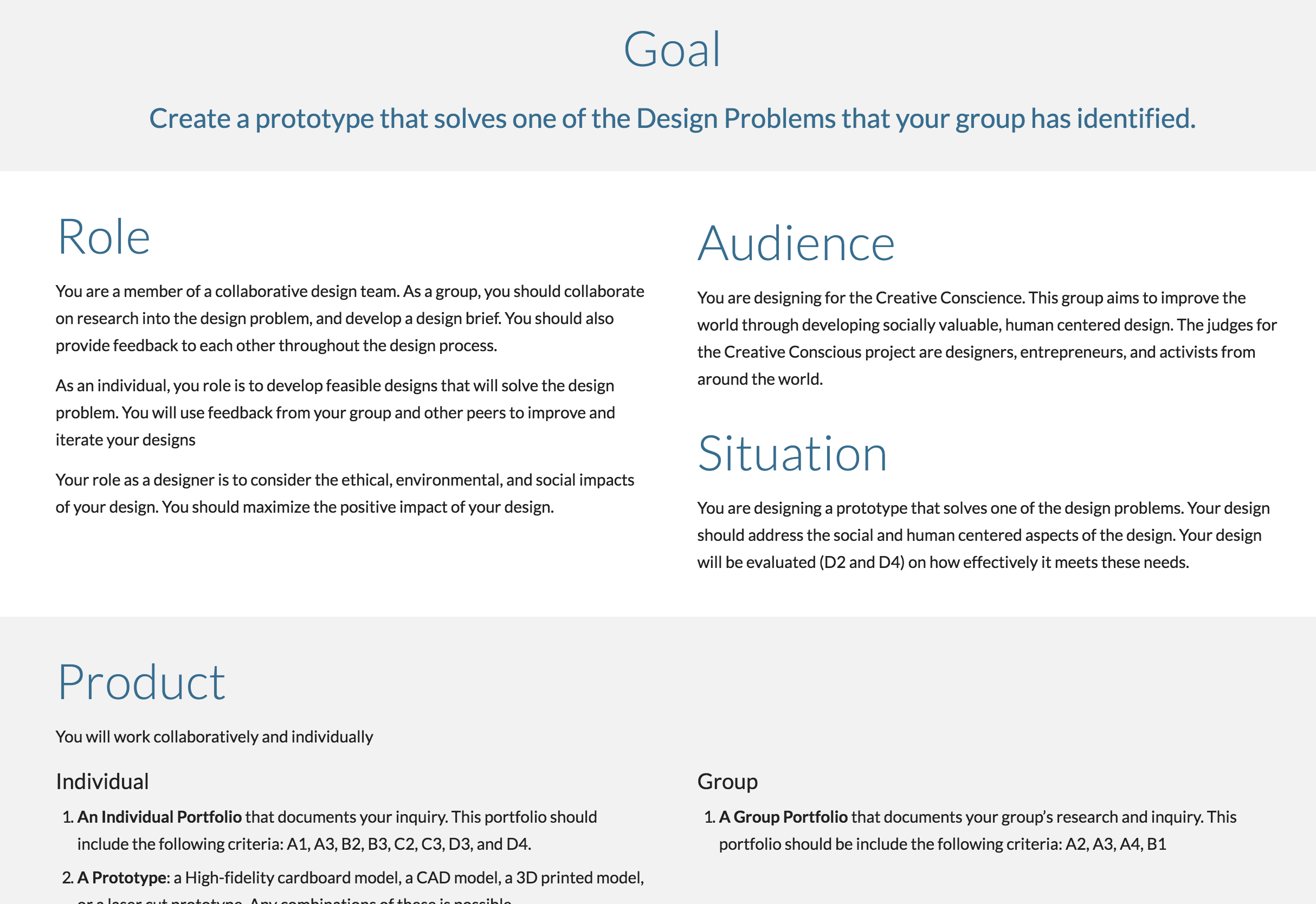When teaching design, we are asking the student to adopt the role of the designer. But for many, that is an unclear role. Students may be unclear about the aspects of their role and how to be successful in it.
A bigger question is the authenticity of the task-- Are we asking students to do something that would be done in the real world outside of the classroom? McTighe and Wiggins define a performance task as authentic if it "reflects the way in which people in the world outside of school must use knowledge and skill to address various situations where expertise is tested or challenged." This distinction helps frame the significance and relevance of the task for the student. Students can see the value of learning the content and developing a solution.
Having performance tasks that are clear and authentic also allow for better assessment - the expectations are clear and we (the teachers) can see evidence of transfer of knowledge and understanding--the synthesis of knowledge into a design solution.
Our program has been thinking about the authenticity of our tasks and units as we continue to develop the conceptual inquiry nature of our program. We have started to use the G.R.A.S.P.S. model to structure performance tasks to clarify expectations and goals, both for the teachers and the students. The assessment associated with the inquiry is structured around the following expectations and goals.
- Goal: A definition of the problem or goal
- Role: Define the role of the student
- Audience: Identify the target audience
- Situation: This is the context or scenario of the goal
- Product: What is created and why it will be created
- Standards: Rubrics or success criteria
A recent unit title Designing Like You Give A Damn, used this model to develop an open inquiry into issues of sustainability and global importance. On the Unit website, parts of the grasp model are made clear for the students.
We are looking to further develop these as the framework for developing our units and assessment pieces, with the goal of moving towards authentic assessment and authentic tasks.

